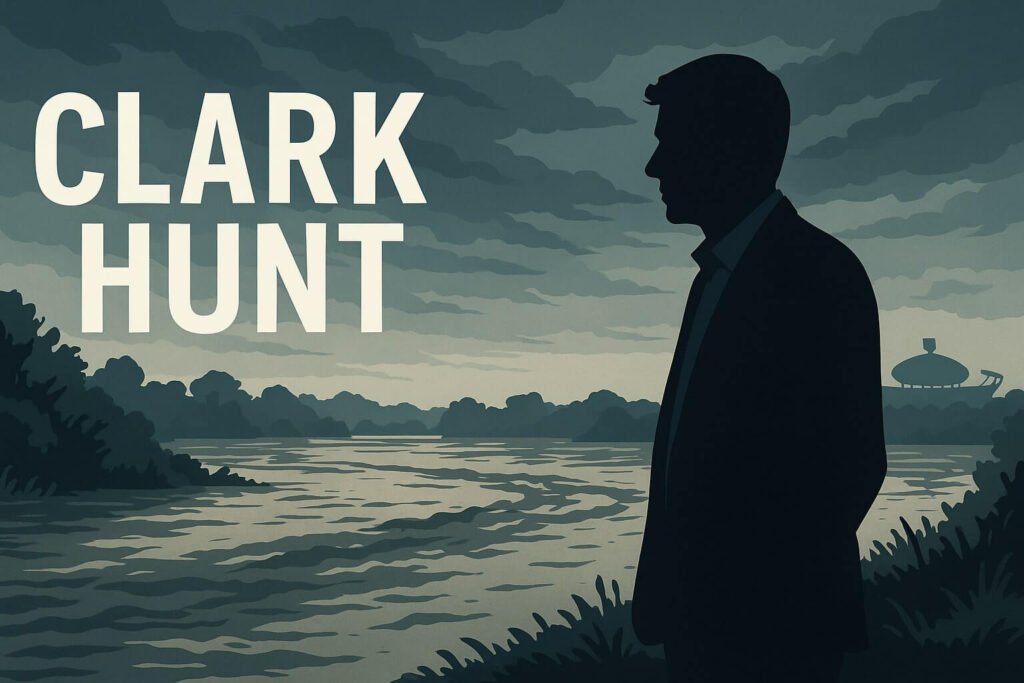In the chaos of July 2025, as floodwaters tore through Texas Hill Country and left communities grappling with heart-wrenching loss, one name quietly echoed across the nation: Clark Hunt. Most know him as the composed, calculating owner of the Kansas City Chiefs. Fewer saw the heartbreak behind the headlines this week, when it was confirmed that Hunt’s own family was among those devastated by the deadly flash floods in Hunt, Texas. A nine-year-old girl, his cousin Janie Hunt, lost her life when the Guadalupe River surged past its banks and ripped through Camp Mystic. For Clark Hunt, this moment now carries more weight than any Super Bowl or stadium vote. It is a moment that blends personal loss with public duty, a test of resilience both private and professional.
Clark Hunt was already juggling enormous pressure even before this tragedy. As the 2025 NFL preseason looms, he’s facing tense negotiations over the future of Arrowhead Stadium, media speculation about team relocation, and the afterglow of back-to-back Super Bowl appearances. The flood didn’t just wash through a piece of Texas—it ran through the very heart of the Hunt legacy, shaking the ground beneath a man who usually seems unshakable.
News of the flood broke early Monday morning, with images of submerged cabins, shattered trails, and rescue crews wading chest-deep through what had once been summer memories. Tropical Storm Chantal had dropped torrential rain across the region, and rivers like the Guadalupe responded violently. Within hours, Camp Mystic was a disaster zone. The Hill Country town of Hunt, which ironically shares its name with the family, became a center of national attention for all the wrong reasons. As the names of the dead slowly emerged, so too did the story that one of them was family to Clark Hunt.
He responded not with a press release or a corporate statement, but by flying quietly to Texas. Local sources confirmed that he spent time near the scene, supporting his extended family and speaking with emergency officials. It wasn’t the owner of an NFL powerhouse who showed up. It was just Clark. A cousin. A father. A man showing up for his people when words fall short.
Yet he remains very much in the public eye. The Kansas City Chiefs are approaching another pivotal season. Quarterback Patrick Mahomes has vowed redemption after a bitter Super Bowl loss to the Eagles, and ticket demand is soaring thanks in part to the cultural rocket fuel provided by Travis Kelce’s relationship with Taylor Swift. As the team’s chairman and CEO, Clark Hunt has been instrumental in shaping both the business and brand side of this unique moment in NFL history.
He is also at the center of billion-dollar talks about the Chiefs’ future home. Will the franchise stay in Missouri with a renovated Arrowhead, or cross state lines to Kansas in search of newer infrastructure and bigger tax incentives? The question has become the talk of two states, a debate tangled in politics, economics, and sentiment. Missouri has already approved over $1.5 billion in public funding options, but Kansas has dangled its own alluring offer. For fans, it’s more than geography. It’s identity. For Hunt, it’s a negotiation playing out under a storm cloud of grief.
Even in this emotionally turbulent time, Clark Hunt has doubled down on the family’s longstanding commitment to philanthropy. Within a day of Janie’s death being confirmed, the Hunt Family Foundation announced a $500,000 flood relief donation, joined by the NFL, the Cowboys, and the Texans to form a $1.5 million emergency fund for victims and rebuilding. It wasn’t a marketing move. It was instinct.
The Hunt family’s reputation for quiet giving goes back generations. They’ve supported youth homes, addiction recovery programs, education grants, and disaster relief. That kind of aid isn’t new. What’s different now is the intimacy of the loss. This flood didn’t just call for the Hunts to step in. It forced them to look inward.
As of today, July 8, the flood death toll in Texas has surpassed 80. It is one of the worst flash flood disasters in state history. More than a dozen counties remain under repair advisories, roads have been torn apart, and some families are still searching for missing loved ones. Amid this, Hunt has maintained his signature poise. There’s no dramatic media tour. No exclusive interviews. Just carefully calibrated moves—a mixture of compassion and control.
Some critics argue that Hunt’s low profile during these negotiations is strategic. They say keeping stadium talks quiet while boosting public goodwill with philanthropy is just business. Maybe there’s a little truth to that. But most who know him personally say this moment transcends spin. The man is grieving. The father of three. A cousin trying to make sense of the senseless. The owner of a football dynasty now balancing loss with leadership.
The next few months will define much of what comes next for both the Chiefs and Clark Hunt himself. Stadium decisions, team strategy, preseason logistics, and now the burden of family healing. But if history is any guide, he’ll approach each with the same measured hand he always has. The same steady gaze he wore when his team lifted the Lombardi trophy. Only now, it will carry a different depth. The kind you don’t get from winning games.
Clark Hunt may not show up loudly, but he shows up fully. In boardrooms. In backfields. And in the middle of a disaster zone where summer turned to sorrow. As the waters recede and Texas begins to dry out, so too does the world begin to watch—not just what kind of season the Chiefs will have, but what kind of man Hunt proves to be when the stadium lights dim and the floodlights burn instead.


